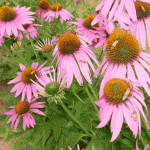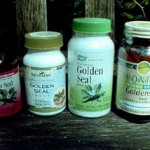Medicinal Herbs for Commerce: Introduction
go.ncsu.edu/readext?436160
en Español / em Português
El inglés es el idioma de control de esta página. En la medida en que haya algún conflicto entre la traducción al inglés y la traducción, el inglés prevalece.
Al hacer clic en el enlace de traducción se activa un servicio de traducción gratuito para convertir la página al español. Al igual que con cualquier traducción por Internet, la conversión no es sensible al contexto y puede que no traduzca el texto en su significado original. NC State Extension no garantiza la exactitud del texto traducido. Por favor, tenga en cuenta que algunas aplicaciones y/o servicios pueden no funcionar como se espera cuando se traducen.
Português
Inglês é o idioma de controle desta página. Na medida que haja algum conflito entre o texto original em Inglês e a tradução, o Inglês prevalece.
Ao clicar no link de tradução, um serviço gratuito de tradução será ativado para converter a página para o Português. Como em qualquer tradução pela internet, a conversão não é sensivel ao contexto e pode não ocorrer a tradução para o significado orginal. O serviço de Extensão da Carolina do Norte (NC State Extension) não garante a exatidão do texto traduzido. Por favor, observe que algumas funções ou serviços podem não funcionar como esperado após a tradução.
English
English is the controlling language of this page. To the extent there is any conflict between the English text and the translation, English controls.
Clicking on the translation link activates a free translation service to convert the page to Spanish. As with any Internet translation, the conversion is not context-sensitive and may not translate the text to its original meaning. NC State Extension does not guarantee the accuracy of the translated text. Please note that some applications and/or services may not function as expected when translated.
Collapse ▲The Medicinal Herbs for Commerce Project is long over, but the information developed in that project is still valid, so we will continue to update and keep it posted for your use. We hope it is helpful.
What is a medicinal herb?
Medicinal herbs are plants that are used for medicinal purposes. Other types of herbs include culinary herbs, used to flavor food, and aromatic herbs, used to add fragrance. Medicinal herbs cover a wide range of types of plants. They can be annuals or perennials; woody or herbaceous; sun-loving or shade requiring. The parts of the plants used for medicine may be their leaves, flowers, roots, seeds or bark. What puts medicinal herbs together in a category is their use in healing. Plants have been used by humans and animals for medicine for many hundreds of years. Not surprisingly, many medicinal plants have a rich folklore associated with them. This cultural history is an important part of many communities in North Carolina and many other places. In addition to their cultural significance, medicinal herbs are important economically. Due to North Carolina’s unique topography and climate, growers here have the potential to profit from the cultivation of many medicinal plant species.
What is the medicinal herb industry like?
There are many players and a wide range of commercial activity within the medicinal herb industry. It is comprised of everything from multinational corporations trading large volumes of bulk raw materials around the world, to small-town businesses making value-added herbal products for direct sale to local customers, and everything in between. For example, some of the types of companies you may find in the medicinal herb industry include:
- Companies that purchase raw materials and manufacture finished herbal products
- Companies that purchase raw materials and manufacture ingredients for other companies to put into finished herbal products
- Companies that purchase raw materials and sell them to manufacturers (i.e., brokers)
- Companies that grow their own raw materials and sell to herbal product manufacturers
- Companies that grow their own raw materials, add value to them by processing them and crafting finished raw materials for distribution or direct sale.
The broad scope inherent in this industry translates into a lot of information for interested growers to understand, but it also means there are different ways for growers to get involved. With creativity and perseverance, growers and entrepreneurs of all shapes and sizes have the potential to find a niche in this marketplace.
Not only is this industry multi-faceted, but it is also incredibly dynamic. The medicinal herb market fluctuates in a way that differs from many agricultural markets. It is immature by industry standards and not as well organized as other commodities. It is also under pressure from federal agencies to ensure safe products which has many herbal product companies and regulatory agencies working together to develop standardized quality measurements and procedures. This means that it is an industry in constant flux! This can present an opportunity for a grower or herbal product entrepreneur, but it also means growers must maintain a level of flexibility that they may not have needed in other industries, for example with traditional commodity crops in North Carolina.
If you’re thinking about entering the medicinal herb industry, the first thing you’ll want to do is evaluate your interests, resources, and capabilities to get a sense of how you may want to get started.
LINKS:
American Botanical Council (ABC), established in 1988, is the leading independent, nonprofit, international member-based organization providing education using science-based and traditional information to promote the responsible use of herbal medicine.
Ag Marketing Resource Center is an electronic, national resource for producers interested in value-added agriculture, including medicinal herbs and products. AgMRC offers producers the ability to investigate opportunities for commodities and products; gather information on market and industry trends; learn how to create and operate a business; study research results of markets and businesses; and locate national, state and local value-added resources
eMedicinal.com has easy-to-read reference materials on topics ranging from herbs, herbal formulas, and diseases, to a resourceful link database and weekly articles with break thru information (not sure if this is still being updated or not, but the information on the site is still good).
Jeanine Davis, NC Alternative Crops & Organics Program, Department of Horticultural Science, NC State University. (reviewed on 6/29/2022)




